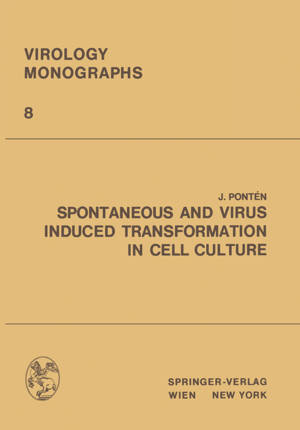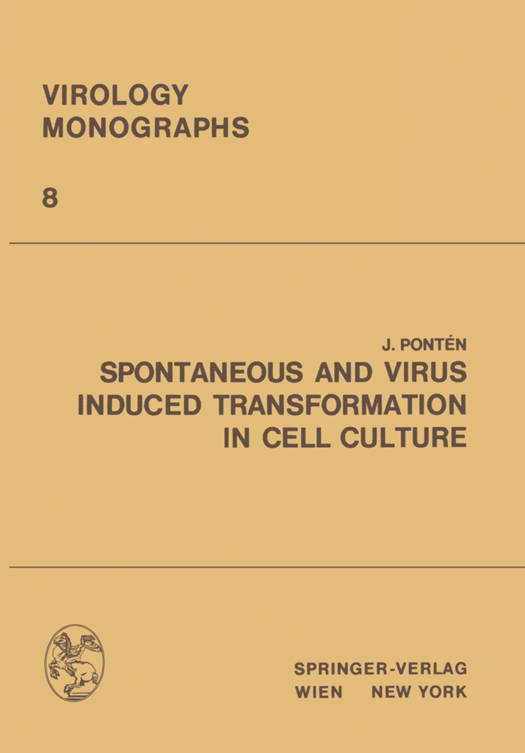
- Afhalen na 1 uur in een winkel met voorraad
- Gratis thuislevering in België vanaf € 30
- Ruim aanbod met 7 miljoen producten
- Afhalen na 1 uur in een winkel met voorraad
- Gratis thuislevering in België vanaf € 30
- Ruim aanbod met 7 miljoen producten
Zoeken
Omschrijving
A. Definitions of Transformation in vitro When normal tissues or organs are explanted to conditions favoring the growth of cells as individual units ("cell culture"), the original cell population undergoes a large variety of modifications. Only a minority of the cells will thrive and multiply and within a rather short period of time, the complex composition of the original explant is replaced by a much simplified one of only a few recogniz- ably different cell types. With most organs fibroblast-like cells survive longest and outgrow other types. This is then a stable state of affairs for many gener- ations. This treatise will not discuss whether this simplification and stabilization represents selection of certain pre-existing cell types or a modification of cells into only a few recognizably different categories; for an excellent review see HARRIS. (1964). Table 1. Terminology Employed to Describe Transformations in vitro Type of transformation Essential features Irregular growth Lack of contact inhibition of cell membrane movement ("ruffled membranes") between juxtaposed cells Unrestrained growth Deficient inhibition of the cell cycle (mitosis) in a crowded culture Infinite growth Capacity of cells to undergo an infinite number of di- visions (formation of established cell lines) Cells may depart from this typical behavior in numerous ways involving for instance cellular morphology, immunology, chromosomes or metabolism. Such changes have, sometimes rather vaguely, been called "transformations". This is unprecise and the term "transformation" will here be used exclusively to indicate disturbances in cell growth related to neoplasia.
Specificaties
Betrokkenen
- Auteur(s):
- Uitgeverij:
Inhoud
- Aantal bladzijden:
- 256
- Taal:
- Engels
- Reeks:
- Reeksnummer:
- nr. 8
Eigenschappen
- Productcode (EAN):
- 9783709182604
- Verschijningsdatum:
- 5/01/2012
- Uitvoering:
- Paperback
- Formaat:
- Trade paperback (VS)
- Afmetingen:
- 170 mm x 244 mm
- Gewicht:
- 417 g

Alleen bij Standaard Boekhandel
+ 201 punten op je klantenkaart van Standaard Boekhandel
Beoordelingen
We publiceren alleen reviews die voldoen aan de voorwaarden voor reviews. Bekijk onze voorwaarden voor reviews.








